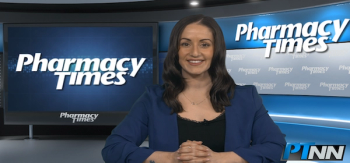
February 7 Pharmacy Week in Review
This weekly video program provides our readers with an in-depth review of the latest news, product approvals, FDA rulings, and more. Our Week in Review is a can't miss for the busy pharmacy professional.
This weekly video program provides our readers with an in-depth review of the latest news, product approvals, FDA rulings, and more. Our Week in Review is a can't miss for the busy pharmacy professional.
Nicole Grassano, Host: Hello and welcome to the Pharmacy Times News Network. I’m Nicole Grassano your host for our Pharmacy Week in Review.
A policy loophole regarding the ban of e-cigarettes currently permits all flavors to be sold in devices that cannot be refilled and are designed to be disposable, Pharmacy Times reported. Fruit, mint, and dessert flavored refillable cartridge-based cigarettes, such as JUUL, have been prohibited by the Trump administration; however, the holes in the government’s flavor ban have led competing brands to prosper with disposable cigarettes. The FDA 2019 Youth Tobacco Survey shows that a quarter of the nation’s high school students reported vaping within the previous 30 days, up to 21% in the prevous year and 12% in 2016. Data have shown that the most appealing e-cigarettes for youths are cartridge-based products that are easy-to-use and easily concealable.
Approximately 2 million adults in the United States who have cardiovascular disease currently use marijuana or have used the drug in the past, Contemporary Clinic reported. Cannabinoids can affect the metabolism of many drugs for heart disease, including antiarrhythmics, statins, calcium-channel blockers, beta blockers, and warfarin. Researchers believe that cannabinoids may increase the activity of prescription drugs in the body, although limited data are available to help physicians adjust the dose of the prescriptions to compensate for marijuana use. Researchers suggest that providers talk to their patients about marijuana use to be certain that patients are getting therapeutic doses of their cardiac drugs without unexpected adverse events.
Researchers have discovered the mechanism behind how HIV can develop resistance to a widely-prescribed group of drugs, Specialty Pharmacy Times reported. Integrase strand transfer inhibitors work by binding with 1 of HIV’s enzymes, integrase, to stop it from inserting the virus’ genetic information into the DNA in human cells. Researchers examined the structure of integrase and found that the weakening of drug binding occurs due to the combined effect of mutations and a loss of key water molecules. The study findings may lead to the development of more effective treatments for patients with HIV, according to researchers.
Pharmacists may get more questions about Emgality, if patients have seen a recent commercial for the prescription medication. In the spot, called “Fantasy Adventure,” the narrator explains that in patients with 15 or more headache days per month, 28% had their monthly migraine days cut in half with Emgality when compared with 15% who took placebo. According to the commercial, Emgality is a monthly medical injection that is intended to help give people more migraine-free days when taken as prescribed.
For more great coverage and practical information for today’s pharmacist, visit our website and sign up for our Daily eNews. And don’t forget to follow us on Facebook, Twitter, and Instagram. Thanks for watching our Pharmacy Week in Review. I’m Nicole Grassano at the Pharmacy Times News Network.
Newsletter
Stay informed on drug updates, treatment guidelines, and pharmacy practice trends—subscribe to Pharmacy Times for weekly clinical insights.


























